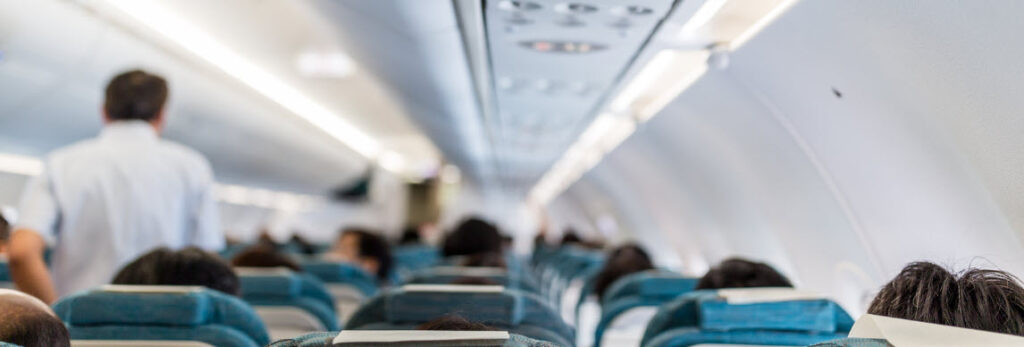Hey there travel enthusiasts and welcome to my post where I we will run through my 10 tips for avoiding jet lag. As we know, traveling is undoubtedly one of life’s greatest joys, but there’s one notorious companion that often tags along, threatening to dampen your spirits and disrupt your plans – jet lag.
The disorienting effects of jet lag can cast a shadow over even the most meticulously planned trips. So for those of you about to get on a plane across a time zone or two, let’s ruin through some tips looking at such influences as establishing a pre-flight and in-flight routine, optimizing your sleep patterns, incorporating light exposure and adopting smart strategies to combat fatigue.
- Adjust your sleep schedule
- Stay hydrated
- Follow the local schedule
- Get natural light exposure
- Avoid heavy meals
- Stay active during the flight
- Limit napping
- Use sleep aids cautiously
- Adjust your environment
- Be patient and allow time for adjustment
Tips for Avoiding Jet Lag
While jet lag is a common occurrence for travelers, there are several strategies and lifestyle adjustments that can help minimize its impact. These may include adjusting sleep schedules before departure, staying well-hydrated, avoiding excessive alcohol and caffeine consumption, gradually adapting to the local time zone upon arrival and strategically using light exposure to help reset the internal clock.
Below are some proven ways to minimize jet lag:
1. Adjust your sleep schedule
To avoid the jarring effects of sudden time zone changes, gradually shift your sleeping and waking times a few days before your trip. If you’re traveling eastward, try going to bed and waking up earlier each day. If you’re heading westward, adjust your schedule to go to bed and wake up later.
By slowly aligning your sleep pattern with the upcoming time zone, your body can begin adapting to the new schedule in advance. This gradual adjustment helps minimize the shock to your internal clock, making it easier for you to transition smoothly and avoid severe jet lag symptoms.
2. Stay hydrated
Proper hydration is essential for combating jet lag. Start hydrating well before your flight, and continue drinking water throughout your journey. Airplane cabins can be dry, so it’s important to replenish your body’s fluids regularly.
Avoid excessive consumption of alcohol and caffeine, as they can dehydrate you and interfere with your sleep quality. Instead, opt for water, herbal teas or fruit-infused beverages. Staying properly hydrated supports your body’s natural functions and helps alleviate the discomfort and fatigue associated with jet lag.
Check out these: Tips for Staying Healthy While Traveling
3. Follow the local schedule
Upon arrival at your destination, it’s crucial to align yourself with the local time as quickly as possible. This means adjusting your meal times, sleep schedule and daily activities to match the local rhythm. Try to resist the urge to nap unless it aligns with the local daytime hours.
Instead, engage in light activities and expose yourself to natural daylight, which can help regulate your internal clock. By following the local schedule, you provide clear signals to your body allowing it to adapt more efficiently to the new time zone and minimizing the effects of jet lag.

4. Get natural light exposure
One of the key factors in regulating your body’s internal clock is exposure to natural light. After arriving at your destination, make an effort to spend time outdoors during daylight hours, especially in the morning. Natural light contains specific wavelengths that stimulate the production of hormones responsible for wakefulness and alertness.
By exposing yourself to natural light, you help reset your internal clock and synchronize it with the local time zone. If daylight exposure is limited, consider using a light therapy device or app that emits bright light, simulating sunlight and aiding in adjusting your body’s circadian rhythm.
5. Avoid heavy meals
When traveling, it’s important to be mindful of your dietary choices, especially before and during your flight. Opt for light, nutritious meals that are easy to digest. as heavy, greasy foods can cause discomfort and disrupt your digestive system, making it harder for your body to adjust to the new time zone.
This one is not as easy as it sounds as part of the travel fun is trying new foods. However, for the first few days, try and choose foods rich in lean proteins, fruits, vegetables and whole grains. These provide sustained energy while supporting your body’s natural functions, helping you feel more refreshed upon arrival.
6. Stay active during the flight
Sitting for long periods during a flight can contribute to muscle stiffness, decreased blood circulation and overall fatigue. Combat these effects by engaging in light exercises and stretches while onboard. Take short walks up and down the aisle whenever possible, and perform simple exercises like ankle circles, shoulder rolls, and neck stretches.
These movements promote blood circulation, prevent stiffness and help you feel more alert and refreshed when you land. This is also highly recommended to reduce the risks of other health issues caused by flying such as DVT as well.

7. Limit napping
While it may be tempting to take a nap upon arrival, especially if you’re feeling fatigued, it’s important to resist the urge if it doesn’t align with the local time zone. Napping at the wrong time can disrupt your sleep-wake cycle and make it harder for your body to adjust to the new schedule. However, if you must nap, keep it short and strategic. Limit your nap to around 20- 30 minutes and try to time it in accordance with the local daytime hours.
This power nap can provide a quick energy boost and help you combat fatigue without interfering with your regular sleep schedule. Set an alarm to ensure you don’t oversleep and to prevent grogginess upon waking. By strategically managing your napping, you can optimize your ability to adjust to the new time zone and minimize the impact of jet lag.
8. Use sleep aids cautiously
Sleep aids such as melatonin can be helpful in regulating sleep patterns and aiding in adjusting to a new time zone. Melatonin is a hormone naturally produced by the body to regulate sleep and taking it in supplement form can help signal to your body that it’s time to sleep in the new time zone.
However, it’s important to use them judiciously and consult with a healthcare professional before incorporating them into your travel routine. They can provide guidance on the appropriate dosage, timing, and duration of use based on your individual needs.
9. Adjust your environment
Creating a sleep-friendly environment can greatly contribute to better sleep quality and aid in adjusting to the new time zone. Use earplugs or noise-canceling headphones to block out disruptive sounds, especially if you’re staying in a noisy area and an eye mask can help create a dark environment and promote deeper sleep, particularly if you’re in a location with excessive light.
Adjust the temperature in your room to a cool, comfortable level, as a cooler environment can support better sleep. Utilize white noise machines or smartphone apps that produce soothing sounds to mask any disruptive noises and promote a calming atmosphere conducive to sleep.
Check out my: Bose Noise Cancelling Headphones Review

10. Be patient and allow time for adjustment
And finally, keep in mind that jet lag is a temporary condition that will improve as your body gradually adapts to the new time zone. It’s important to be patient with yourself and allow ample time for adjustment. Don’t put undue pressure on immediate acclimation as it may take a few days for your body to fully sync with the local time.
Focus on maintaining a healthy routine, following the tips mentioned above, and giving yourself time to rest and recover. Embrace a flexible mindset and remind yourself that jet lag is a normal part of long-distance travel, and it will pass as your body adjusts.
What is Jet lag?
Jet lag is a temporary disruption in our body’s internal clock, or circadian rhythm, that occurs when we travel across multiple time zones. Our circadian rhythm helps regulate various bodily functions including sleep-wake cycles, hormone production and metabolism and when we take long haul flights that rapidly move through different time zones, our body’s internal clock struggles to adjust to the new schedule, leading to a range of symptoms collectively known as jet lag.
Common symptoms of jet lag include fatigue, insomnia or excessive sleepiness, difficulty concentrating, irritability, gastrointestinal issues such as indigestion or constipation and general feelings of malaise – I personally just feel like I am walking in a ‘haze’. The severity and duration of jet lag symptoms can vary depending on factors such as the number of time zones crossed, the direction of travel (eastward or westward) as well as individual factors such as age and overall health.

FAQ
How long does jet lag last?
The duration of jet lag symptoms can vary depending on a number of factors, such as the number of time zones crossed, individual differences in sleep patterns and the direction of travel. Generally, it takes about a day to adjust to each time zone crossed.
For example, if you travel from New York to Paris, which is a six-hour time difference, it may take up to six days to fully adjust to the new time zone. However, some people may experience jet lag symptoms for a longer period of time, up to several weeks after travel.
What are the symptoms of jet lag?
Jet lag can cause a range of symptoms including difficulty sleeping, fatigue, irritability, headaches, digestive problems and difficulty concentrating. Symptoms can vary in severity and can be more pronounced when traveling across multiple time zones.
However, the severity of symptoms can be reduced by following strategies to minimize jet lag, such as adjusting sleep schedules, staying hydrated and managing exposure to light.
Conclusion
There they are, my 10 ways to avoid jet lag. And as usual, let me know of your experiences here and what has helped you.
Also, please do not hesitate to comment below if you have any questions, concerns, or corrections or would like me to check anything else out for you.
Until next time.
Have fun
Paul






